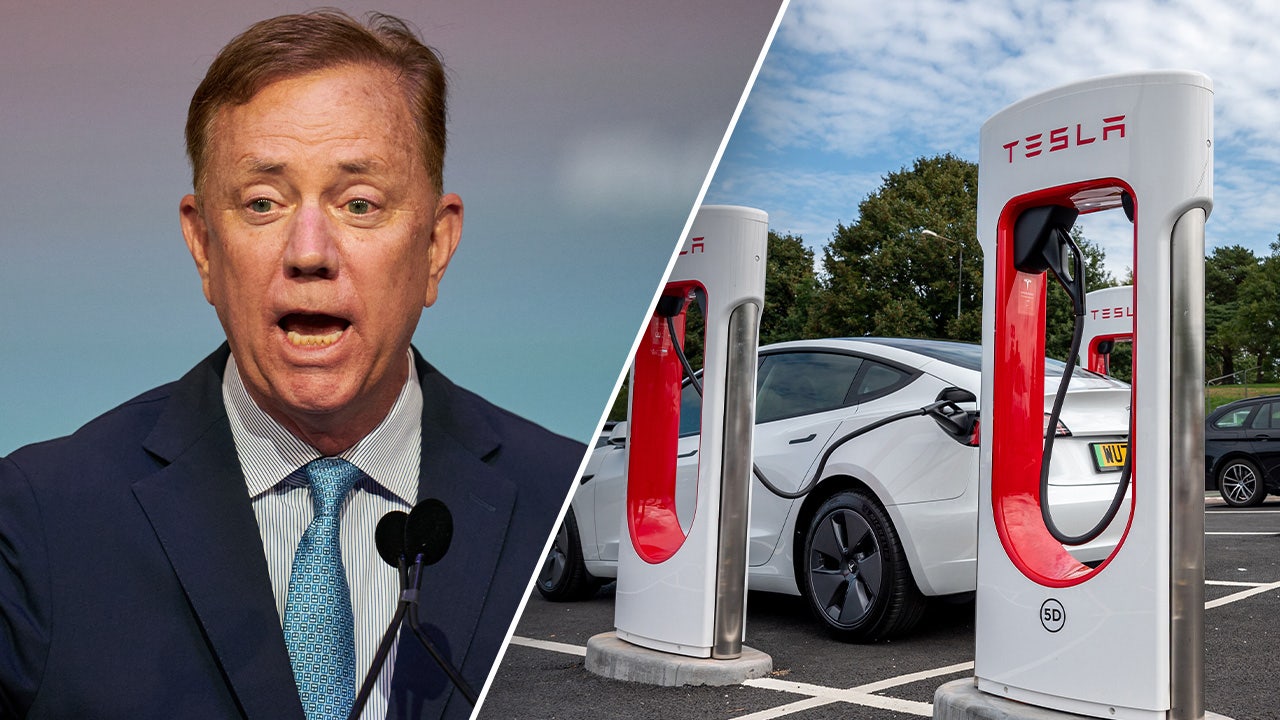Car Dealers Renew Opposition To Electric Vehicle Mandates

Table of Contents
Economic Concerns of Car Dealers Regarding Electric Vehicle Mandates
Car dealers are facing a multitude of economic challenges as a result of the increasing pressure to sell electric vehicles. The transition to a predominantly electric vehicle market requires significant investment and adaptation, placing a considerable strain on dealerships, especially smaller, independent ones.
Impact on Inventory and Sales
The shift to EVs presents substantial hurdles for dealerships. The high upfront costs of EVs compared to gasoline-powered vehicles mean dealers need significant capital investment to build up their inventory. This is further complicated by:
- High upfront costs of EVs: Electric vehicles, particularly those with longer ranges and advanced features, often command significantly higher prices than comparable gasoline cars.
- Limited consumer demand in some regions: Consumer adoption of EVs varies greatly depending on location, infrastructure availability, and consumer awareness. Some regions may not yet have the sufficient demand to justify a large EV inventory.
- Lack of trained technicians for EV repair and maintenance: Servicing electric vehicles requires specialized training and tools, posing a challenge for dealerships accustomed to gasoline car mechanics.
- Potential for inventory obsolescence: Rapid technological advancements in the EV market can lead to quick obsolescence of existing EV models, leaving dealerships with stranded inventory.
Profitability Challenges
Beyond the initial investment, dealers also face ongoing profitability challenges with EVs. Profit margins on EVs are often lower than those on gasoline cars, significantly impacting dealership revenue streams. Several factors contribute to this:
- Lower service revenue from EVs: EVs have fewer moving parts and require less frequent maintenance than gasoline cars, resulting in reduced service revenue for dealerships.
- Intense competition from manufacturers’ direct sales initiatives: Many manufacturers are bypassing dealerships and selling EVs directly to consumers, increasing competition and reducing dealer profits.
- Government subsidies impacting dealer profit: While government incentives aim to boost EV sales, these subsidies often reduce the profit margin dealerships receive per vehicle sold.
Impact on Small and Independent Dealers
The economic challenges posed by EV mandates disproportionately affect smaller and independent dealerships. These businesses may lack the financial resources and market power to adapt effectively to the changing landscape:
- Financial strain of upgrading facilities: Upgrading facilities to accommodate EV charging infrastructure and specialized repair equipment represents a significant financial burden for smaller dealerships.
- Difficulty securing EV inventory: Smaller dealerships may struggle to secure sufficient EV inventory from manufacturers, who may prioritize larger dealerships with greater sales volume.
- Increased competition from larger dealerships: Larger dealerships with greater financial resources are better positioned to invest in EV infrastructure and compete effectively in the changing market.
Consumer Concerns Fueling Dealer Opposition to Electric Vehicle Mandates
Dealer opposition to electric vehicle mandates isn't solely driven by economic concerns; consumer anxieties also play a significant role. Many consumers remain hesitant to adopt EVs due to several key factors:
Range Anxiety and Charging Infrastructure
Range anxiety—the fear of running out of battery power—remains a significant barrier to EV adoption. This is exacerbated by the limitations of current charging infrastructure:
- Charging time: Charging EVs often takes significantly longer than refueling gasoline cars.
- Inconsistent charging speeds: Charging speeds vary widely depending on the charger type and location.
- Limited public charging stations: The availability of public charging stations, especially in rural areas, remains insufficient to meet the needs of a widespread EV adoption.
- Geographic disparities in charging accessibility: Access to reliable charging infrastructure is unevenly distributed, with significant disparities between urban and rural areas.
High Purchase Prices and Affordability
The higher upfront cost of EVs presents a significant affordability barrier for many consumers:
- Limited government incentives: Government incentives, while helpful, may not be sufficient to offset the higher purchase price for all consumers.
- High battery costs: Battery technology remains expensive, contributing significantly to the high cost of EVs.
- Longer loan terms and higher monthly payments: Consumers often require longer loan terms and face higher monthly payments to afford EVs.
Consumer Preference and Choice
Mandates limiting consumer choice in vehicle type can generate significant backlash:
- Variety of vehicle options: Consumers value the variety of vehicle options available, including gasoline, hybrid, and electric vehicles.
- Preference for gasoline or hybrid vehicles: Many consumers continue to prefer gasoline or hybrid vehicles due to factors like cost, range, and charging infrastructure availability.
- Consumer resistance to government mandates: Consumers often resist government mandates perceived as infringing on their freedom of choice.
Alternative Solutions to Increase EV Adoption
Instead of imposing stringent mandates, a more balanced approach is needed to encourage EV adoption. This approach should address both environmental goals and the concerns of the automotive industry:
Phased Approach to Mandates
A phased approach to EV mandates would allow the market to adapt gradually:
- Gradual increase in EV sales targets: Setting increasingly ambitious but achievable targets over time allows dealers and consumers to adapt more effectively.
- Investment in charging infrastructure: Significant investment in public charging infrastructure is crucial to alleviate range anxiety.
- Incentivizing consumer adoption through tax credits and rebates: Government incentives can make EVs more affordable and attractive to consumers.
Focus on Consumer Education and Awareness
Educating consumers about the benefits of EVs and addressing their concerns is critical:
- Public awareness campaigns: Government and industry-led campaigns can increase public awareness of EV technology and benefits.
- Government initiatives to promote EV adoption: Initiatives showcasing the environmental and economic advantages of EVs can encourage adoption.
- Dealer training programs on EV technology and sales: Training programs equip dealerships with the knowledge and skills to effectively sell and service EVs.
Support for Dealer Transition and Investment
Government support is essential to help dealerships adapt to the changing market:
- Financial assistance for infrastructure upgrades: Financial assistance can help dealerships upgrade their facilities to accommodate EV charging and repair.
- Training programs for technicians: Government-funded training programs can ensure a skilled workforce capable of servicing EVs.
- Tax breaks for dealerships investing in EV sales: Tax breaks can incentivize dealerships to invest in EV inventory and infrastructure.
Conclusion: The Future of Electric Vehicle Mandates and the Automotive Industry
Car dealers' opposition to electric vehicle mandates highlights significant economic challenges and consumer concerns that must be addressed. While the transition to electric vehicles is crucial for environmental sustainability, a balanced approach is necessary to ensure the viability of the automotive industry and meet consumer needs. A phased approach, coupled with substantial investment in charging infrastructure, consumer education, and support for dealer transitions, is essential. We need further discussion and collaboration between policymakers, car dealers, and manufacturers to find sustainable solutions that promote the adoption of electric vehicles while considering the challenges faced by all stakeholders. We encourage you to conduct further research on electric vehicle mandates and their potential impact, and participate in public forums discussing electric vehicle mandates and similar policies to contribute to a constructive dialogue on this vital issue.

Featured Posts
-
 Dominique Carlach Et Sa Carte Blanche Points Forts Et Faiblesses
Apr 23, 2025
Dominique Carlach Et Sa Carte Blanche Points Forts Et Faiblesses
Apr 23, 2025 -
 La Valeur Ajoutee D Infotel Un Succes Clientele
Apr 23, 2025
La Valeur Ajoutee D Infotel Un Succes Clientele
Apr 23, 2025 -
 Trumps Fda And Biotech A Positive Outlook
Apr 23, 2025
Trumps Fda And Biotech A Positive Outlook
Apr 23, 2025 -
 Private Credit Jobs 5 Key Dos And Don Ts To Get Hired
Apr 23, 2025
Private Credit Jobs 5 Key Dos And Don Ts To Get Hired
Apr 23, 2025 -
 Son Dakika Erzurum Okullari Tatil Mi Degil Mi 24 Subat Pazartesi Guencel Durum
Apr 23, 2025
Son Dakika Erzurum Okullari Tatil Mi Degil Mi 24 Subat Pazartesi Guencel Durum
Apr 23, 2025
